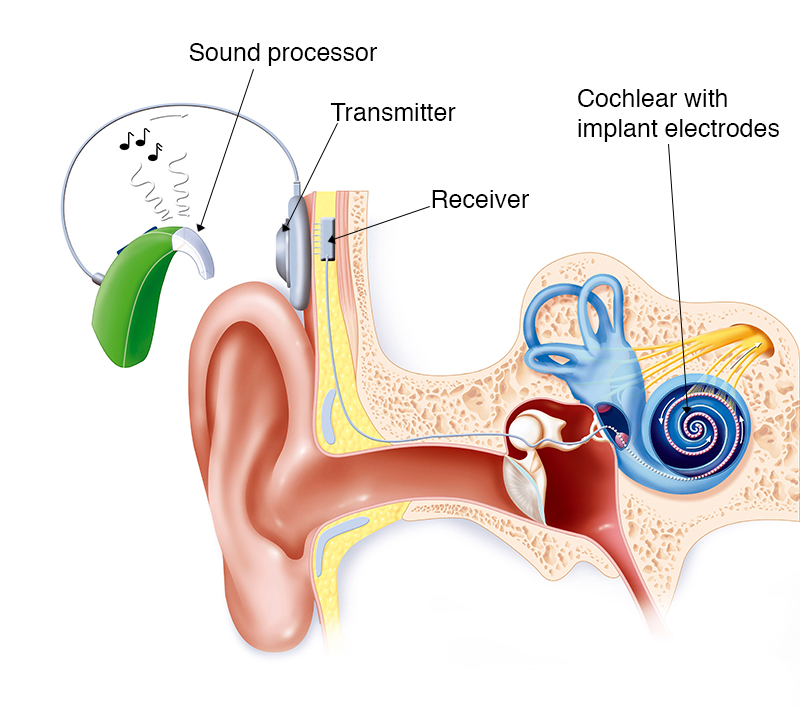Cochlear Implant
Overview
At Indotaj Medical Center, we offer cochlear implant solutions, a medical innovation designed to enhance or restore hearing for individuals experiencing severe to profound hearing loss. Through a surgical procedure, the implant is placed in the inner ear, circumventing damaged or non-functional hair cells to directly stimulate the auditory nerve. This advanced technology provides recipients with the ability to perceive sound and speech, proving effective for those who may not find substantial benefit from conventional hearing aids. With continuous technological advancements, our cochlear implant services contribute to improved speech comprehension and an enriched quality of life for individuals with hearing impairment

Why it's done
A cochlear implant is undertaken to address severe to profound hearing loss in individuals who do not experience significant improvement with traditional hearing aids. This innovative medical procedure is performed to restore or enhance hearing by surgically implanting a device in the inner ear. The implant functions by bypassing damaged or non-functional hair cells, directly stimulating the auditory nerve and enabling recipients to perceive sound and speech. The primary goal is to offer an effective hearing solution for those with profound hearing impairment, contributing to improved speech understanding and an enhanced quality of life.
Risk
While cochlear implants have proven to be beneficial for many individuals with severe to profound hearing loss, like any medical intervention, there are associated risks. Some potential risks and considerations include:
- Surgical Risks
- Device Malfunction
- Incomplete Hearing Restoration
- Adjustment Period
- Cost and Maintenance
- Compatibility Issues
How do I get ready for cochlear implant surgery?
Preparing for cochlear implant surgery involves several steps to ensure a smooth and successful procedure. Here are some general guidelines to help you get ready:
Consultation with Ear Specialist:
- Schedule a thorough consultation with an ear specialist or otolaryngologist who specializes in cochlear implants. Discuss your medical history, hearing condition, and expectations.
Hearing Evaluation:
- Undergo a comprehensive hearing evaluation to determine the extent of your hearing loss and whether a cochlear implant is a suitable solution for you.
Counseling and Education:
- Attend counseling sessions to understand the benefits, risks, and expectations associated with cochlear implantation. This will help you make an informed decision and mentally prepare for the procedure.
Medical Clearance:
- Obtain medical clearance from your primary care physician to ensure you are physically fit for surgery.
Imaging Studies:
- Undergo any necessary imaging studies, such as a CT scan or MRI, to provide detailed information about the anatomy of your ear and ensure that there are no contraindications for surgery.
Discuss Anesthesia:
- Consult with the anesthesiologist to discuss the type of anesthesia that will be used during the surgery and address any concerns you may have.
Preoperative Instructions:
- Follow any preoperative instructions provided by your healthcare team, including guidelines on fasting before surgery and any medications you should or should not take.
Arrange Transportation:
- Plan for transportation to and from the surgical facility on the day of the procedure, as you may not be able to drive immediately after surgery.
Postoperative Care Planning:
- Discuss postoperative care and recovery with your healthcare team, including any restrictions on activities, follow-up appointments, and the activation process for the cochlear implant.
Support System:
- Arrange for a support system to assist you during the recovery period, as you may need help with daily activities.


